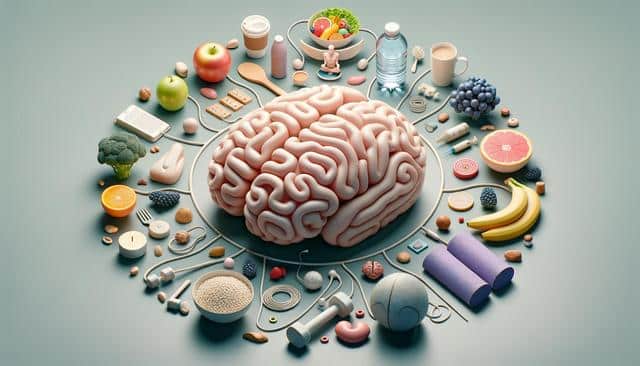
10 Proven Lifestyle Choices for Enhanced Brain Health and Alzheimer’s Prevention: Your Comprehensive Guide
Prioritize Physical Activity for Cognitive Resilience
Regular physical exercise is one of the most widely recommended strategies for brain health. Engaging in aerobic activity increases blood flow to the brain, which helps nourish brain cells and promote the development of new neural connections. Studies have shown that individuals who maintain an active lifestyle are more likely to experience slower cognitive decline and a reduced risk of Alzheimer’s disease. Moderate-intensity workouts such as walking, swimming, or cycling for at least 150 minutes per week can provide notable benefits.
Exercise also facilitates the release of brain-derived neurotrophic factor (BDNF), a protein that supports the survival of existing neurons and encourages the growth of new ones. To incorporate physical activity into your routine, consider:
- Taking daily brisk walks
- Joining a local fitness class
- Using a standing desk to reduce sedentary time
- Engaging in recreational sports
Consistency is key; even small daily movements can compound over time to support long-term brain health.
Adopt a Brain-Friendly Diet
Nutritional choices play a vital role in supporting cognitive function and may help prevent neurodegenerative conditions. Diets that emphasize whole, nutrient-dense foods—especially those rich in antioxidants, healthy fats, and anti-inflammatory properties—are considered beneficial for brain health. Among the most recommended dietary patterns is the Mediterranean-style diet, which is associated with a lower incidence of cognitive decline.
Key components of a brain-supportive diet include:
- Leafy greens and colorful vegetables
- Whole grains and legumes
- Fatty fish rich in omega-3 fatty acids
- Nuts, seeds, and olive oil
Reducing intake of processed foods, added sugars, and trans fats is equally important. These substances have been linked to increased inflammation and oxidative stress, which can negatively affect brain cells over time.
Engage in Lifelong Learning and Mental Challenges
Keeping the brain mentally stimulated is essential for maintaining cognitive sharpness, particularly as we age. Learning new skills or engaging in intellectually demanding activities encourages neuroplasticity—the brain’s ability to reorganize itself by forming new neural connections. This adaptability is crucial for preserving memory and reasoning abilities.
Activities that support cognitive stimulation include:
- Learning a new language or musical instrument
- Solving puzzles, crosswords, or logic games
- Reading books across diverse genres
- Participating in educational courses or workshops
Even simple habits like switching up your daily routine or exploring new hobbies can offer mental stimulation that contributes to a healthier brain.
Manage Stress and Prioritize Restorative Sleep
Chronic stress and poor sleep are often overlooked but significantly impact brain health. Prolonged exposure to stress hormones such as cortisol can impair memory and reduce the brain’s ability to form new connections. Meanwhile, sleep is crucial for brain recovery, consolidation of memories, and removal of neurotoxic waste products through the glymphatic system.
To support both stress reduction and better sleep quality, consider implementing the following strategies:
- Practicing mindfulness or meditation daily
- Establishing a calming bedtime routine
- Limiting screen exposure before sleep
- Maintaining a consistent sleep schedule
Aim for 7–9 hours of uninterrupted sleep per night, and seek medical guidance if sleep disturbances persist. Prioritizing emotional well-being and rest can have long-lasting effects on mental clarity and overall cognitive performance.
Foster Social Connections and Emotional Well-being
Maintaining meaningful social relationships is another powerful yet often underestimated factor in preserving brain health. Social interaction stimulates multiple areas of the brain and can protect against memory loss and other cognitive impairments. In fact, loneliness and social isolation have been associated with an increased risk of dementia and other health issues.
Ways to enhance social engagement include:
- Scheduling regular meetups with family and friends
- Joining local clubs or volunteer groups
- Participating in group activities or classes
- Using technology to stay connected when in-person meetings aren’t possible
Emotional health also plays a role in cognitive longevity. Managing anxiety, depression, and mood disorders through therapy, physical activity, and social support can help maintain both psychological and neurological well-being.
Conclusion: Building a Brain-Healthy Lifestyle
Implementing these evidence-based lifestyle choices can offer significant benefits for brain function and may contribute to lowering the risk of Alzheimer’s disease. By focusing on regular physical activity, a nutritious diet, mental stimulation, quality sleep, and emotional and social well-being, individuals can take proactive steps toward preserving cognitive health. While no single habit guarantees prevention, the combination of these strategies, supported by medical research, provides a strong foundation for long-term mental vitality. Remember, it’s never too early—or too late—to start nurturing your brain.